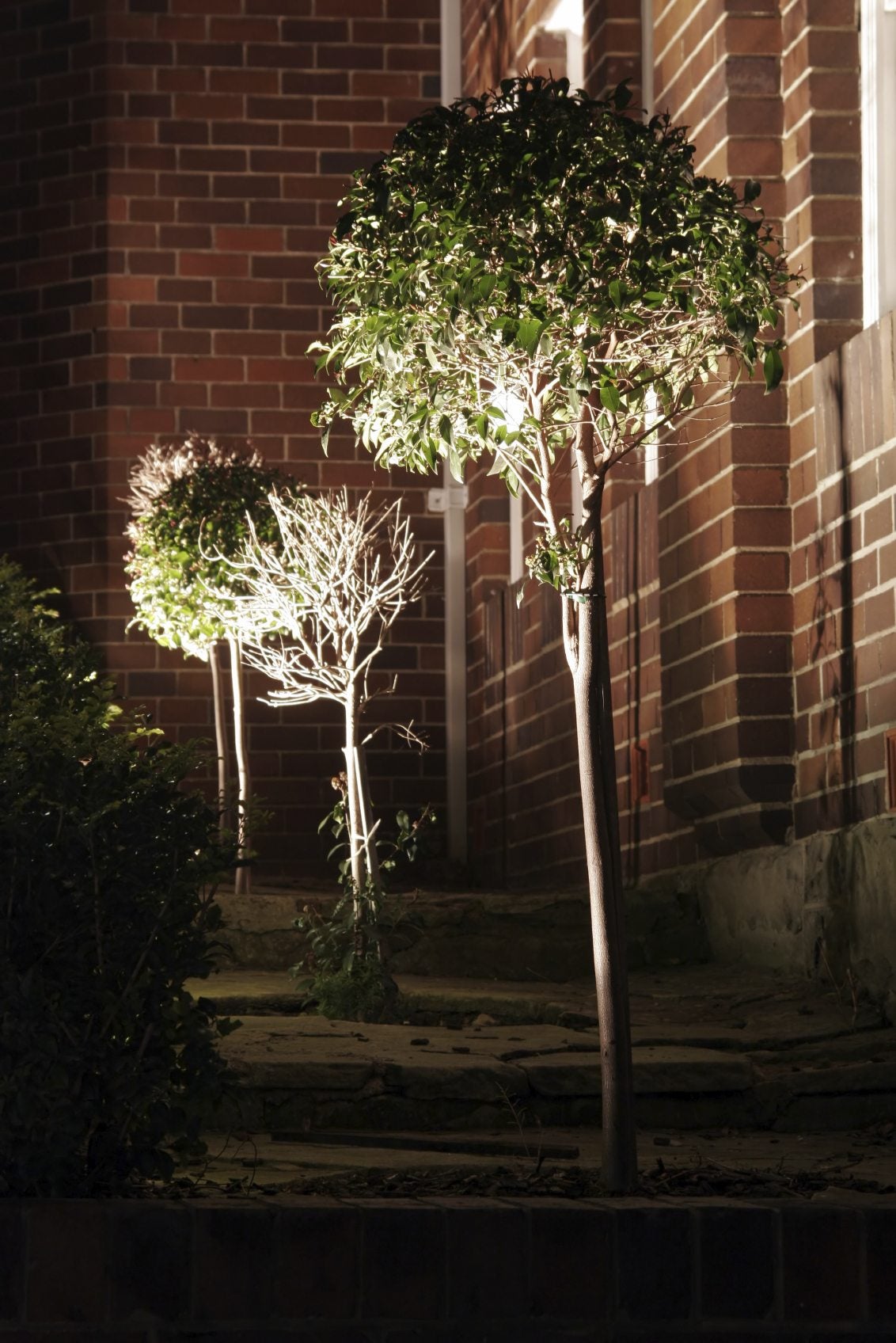What Is Uplighting: Tips For Uplighting Trees In Gardens


DIY uplighting is a fast, relatively inexpensive way to change your backyard from run of the mill to magical. As long as you are installing lights that angle up, it’s uplighting. You can choose among many types of uplighting to illuminate your garden and backyard. Let’s learn more.
What is Uplighting?
When you install ground lights that shine on higher objects or plants, you have accomplished DIY uplighting. Uplighting means that you are illuminating objects from below. It simply refers to the angle of the light. Most types of uplighting are installed at ground level or even below ground level. Uplighting allows you to spotlight your most beautiful garden features, like your favorite shrubs or the architectural elements of your hardscaping. It can also add depth and drama to flat surfaces such as walls and fences.
Uplighting Trees in Gardens
One of the classic uses of this type of angled-up lights is uplighting trees in gardens. If your tree has an open, leafy structure, you can install uplighting close to the base of the trunk. The angled light illuminates the central branches and leaves of the tree. Don’t try close-to-the-base types of uplighting with trees that have a tight, compact silhouette. It’s better to place the lights farther from the base of the tree so that the uplighting illuminates the exterior of the canopy.
Garden Lighting Solutions
For uplighting trees in gardens, both in-ground lights and lights mounted on stakes work well. Stake-mounted lamps will likely cost you less money to buy and less energy to install. However, the stakes can stick out obtrusively. They can also get in the way of lawn mowing or even walking in the backyard. Experts advise that high-pressure sodium lamps are not a good choice for uplighting plants and trees. The light wavelength emitted disrupts the growth patterns of the plants, rendering them more vulnerable to injury. Instead, choose mercury vapor, metal halide, or fluorescent lamps. These will not harm your plants. It’s also wise to use low-intensity lights. Solar lights are an inexpensive, low-intensity option for your garden lighting solutions. Installation is easy since no wiring is involved. Some of these solar types of uplighting allow you to install the light in a shaded area and then remove the solar panel to charge in a sunny spot. Now that you know about some of the outdoor lighting options available for uplighting, you can show off prized plants or other areas of the garden.
Gardening tips, videos, info and more delivered right to your inbox!
Sign up for the Gardening Know How newsletter today and receive a free copy of our e-book "How to Grow Delicious Tomatoes".

Teo Spengler is a master gardener and a docent at the San Francisco Botanical Garden, where she hosts public tours. She has studied horticulture and written about nature, trees, plants, and gardening for more than two decades. Her extended family includes some 30 houseplants and hundreds of outdoor plants, including 250 trees, which are her main passion. Spengler currently splits her life between San Francisco and the French Basque Country, though she was raised in Alaska, giving her experience of gardening in a range of climates.